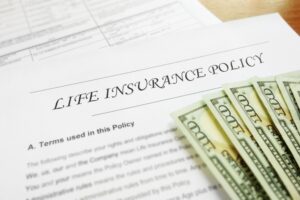New research found that 41% of Americans, about 100 million adults, currently have some form of medical-related debt. The study by the Kaiser Family Foundation discovered that 66% of people with medical debt owe $1,000 or more and 24% of people owe at least $5,000.
Although some medical bills can be negotiated and lowered, others may find it difficult to pay off the balance. If you’re currently struggling to manage unpaid medical bills — this is not a challenge you face alone. Many others have or are experiencing the stress of high hospital debt, as well as the consequences of not dealing with that debt.
To help you plan your next steps, here’s what you need to know about paying medical bills including whether you need to and what happens if you don’t pay them.
Do you have to pay medical bills?
You are required to pay medical bills, and when bills aren’t paid they will be given to a debt collection agency who will attempt to collect the balance or you may be sued by the healthcare provider.
The exception to this are “surprise medical bills”, which consumers may be protected from as part of the No Surprises Act (NSA) that came into effect on January 1, 2022. Surprise medical bills are unexpected charges that are usually from a healthcare provider that you did not know was out-of-network. The NSA protects people who have insurance from surprise medical bills, including emergency and non-emergency services. If you’ve received a surprise medical bill, you may be able to avoid paying it due to protections in the NSA.
If you don’t have insurance, healthcare providers are required to give you a “good faith” estimate of the expected costs before you receive care, and you can file a dispute if the charges are more than $400 above the estimate.
Consequences of unpaid medical bills
When you get sick or have an accident, you generally don’t have the option to decline medical care. In the moment, you aren’t thinking about the balance in your checking account or how much room you have on your credit card — your primary concern is feeling better, and as quickly as possible. It may not be until later, once you are on the mend, that you begin to ask questions about the cost of your care. What will this cost me? What role does my health insurance play here? Were some of these procedures optional? Should I leave the hospital early to keep my expenses lower? And, finally, what if I can’t pay my medical bill?
The last of those questions is the simplest to answer. The consequences of not paying your medical bills are fairly predictable. Assuming you ignore the bills entirely, you’ll likely see the five consequences described below.
1. Late fees and interest
Your healthcare provider will start pressuring you to pay the medical debt by adding late fees and/or interest charges to your balance — to the extent allowed in your state. Those additional charges can increase the amount you owe substantially over time. A modest 8% interest rate on a $20,000 bill, for example, adds about $133 to your balance each month and $1,600 each year.
To understand how much you could be charged in interest and fees, go back and review every document you signed before you were treated. Healthcare providers should disclose how they handle unpaid balances, and that information is usually found in the fine print of your onboarding documentation. Unfortunately, if you find the late payment policy on a document you’ve signed, you’ve already agreed to the late fees and interest charges. The good news is that these extra charges can be a negotiating point, should you contact the provider and try to work out a payment plan.
2. Debt collectors
If the balance remains open for a certain period of time — usually 90 days or more — the healthcare provider will probably send your account to a collection agency. At that point, you can expect to get repeated phone calls and letters from the debt collector. You can try to ignore these outreach attempts, but it will be difficult — debt collectors are very good at being persistent.
3. Credit damage
The collection agency will report your unpaid balance to the major credit bureaus. Those bureaus are Experian, TransUnion, and Equifax. All three have a waiting period of 180 days before your medical debt appears on your credit report.
Once the waiting period ends and the unpaid debt becomes part of your credit history, your credit score will drop. The consequences of a lower credit score, unfortunately, can be far-reaching. You may have trouble acquiring a new credit card or line of credit, and you won’t qualify for the lowest interest rates. Those problems will continue for seven years, which is the length of time the issue will remain on your credit report.
4. Lawsuit
If the collection agency does not get you to pay up, the next step is a lawsuit against you. The provider’s endgame in suing you is to obtain a judgment from the courts. Once that happens, the provider can start using more aggressive collection tactics like liens, wage garnishments, and bank account levies.
5. Liens, wage garnishments, and levies
A lien is a claim placed on your property by a creditor. Commonly, creditors will pursue liens against your home. Doing so gives the creditor the right to be repaid from the proceeds when you sell that home. The presence of a lien may also make it tough for you to refinance.
A wage garnishment is the legal withholding of some of your earnings to satisfy an unpaid debt. The federal government limits wage garnishments to 25% of your after-tax income, but even that amount can be a substantial blow to your household budget.
A bank account levy is the most serious action a creditor can take. When the levy is applied, the creditor essentially takes money from your account without your permission. Any funds you put in the bank going forward can also be seized. For obvious reasons, a levy can quickly escalate your financial problems.
How to get help with medical bills
So, what happens if you don’t pay medical bills? Mostly bad stuff. The longer you do nothing to resolve the medical debt, the more severe the consequences get. While it’s natural to want to hide and hope the bills go away, that’s just not a good strategy. Instead of thinking about not paying, you’re better off tackling a different question: “Where can I get help paying medical bills?” Because no matter what your financial situation is, there are realistic ways to reduce your medical debt. Here are six of them.
1. Review charges and ask for a payment plan
Your first course of action should be to review all of the bills and verify the charges are accurate. It’s estimated that more than 80% of medical bills contain errors, so you should closely examine your bill to ensure all charges apply. Make a list of questions regarding any unusual charges and then reach out to your healthcare provider for clarification.
Once you’ve agreed on which charges apply, try negotiating with the healthcare provider to lower the balance. Explain your situation, ask if any of the charges can be waived or reduced, and offer to make payments over time. You may be able to significantly reduce your bill by offering to pay a large portion of it upfront, such as an immediate 25-30% payment in exchange for waiving the rest. Do this before the account goes to collections if you can.
2. Consolidate your medical debt
If the provider doesn’t agree to an affordable payment plan, consider using low-rate debt to pay off your healthcare balance. Sources of low-rate debt include home equity, life insurance loans, or a loan or withdrawal from your 401(k). All of these options have long-term, negative financial consequences, so proceed only after you’ve analyzed the pros and cons.
3. Life settlement
A life settlement is the sale of your life insurance to a third-party buyer for a one-time cash payment. Raising cash to pay your medical debt via a life settlement is an attractive alternative because it doesn’t require you to take on debt. You do forfeit your life insurance, but that’s often preferable to sacrificing your 401(k) balance or resetting your mortgage payoff date for 30 years.
You can get a free, no-obligation assessment of your life insurance from Harbor Life Settlements. Contact us at 800-694-0006 today to learn more.
4. Try crowdfunding
Crowdfunding is another option that’s become more popular in recent years. You can set up a fundraising page at GoFundMe and share it with friends and family. You’ve likely seen these personal fundraisers in your own social media feeds — they can often raise tens of thousands through small donations from your own network.
5. Look to a charity organization
If you’ve been diagnosed with a life-threatening, chronic, or rare disease, you may qualify for assistance from a charity organization like PAN Foundation or HealthWell Foundation. Both are organized around the mission to help underinsured patients get the care they need.
6. Bankruptcy
Did you know that so many people need help paying medical bills that it’s the most common reason for filing bankruptcy? Sadly, it’s true. If you’re searching for how to get rid of medical debt (when you know you don’t have the means to pay it), Chapter 7 bankruptcy could be the answer. In a Chapter 7 filing, your healthcare bills are wiped out along with other general debts like credit card balances. There are caveats, though. First, not everyone qualifies for Chapter 7 bankruptcy — you must meet certain income requirements. Second, the courts have the right to sell off some of your property to settle the debt. And third, any type of bankruptcy filing will stay on your credit report for up to 10 years.
Your other bankruptcy option is a Chapter 13 filing, which does actually give you some help with medical bills — in the form of a court-ordered payment plan. The healthcare-related balance is combined with your other unsecured debts and you pay it off over time. This still leaves a serious, long-lasting blemish on your credit report, but it could be an option if you don’t qualify for Chapter 7 bankruptcy.
Consult with an attorney to learn more about these options and to decide if bankruptcy is right for you.
When you can’t pay your medical bills
When you don’t pay your medical bills, you face the possibility of a lower credit score, garnished wages, liens on your property, and the inability to keep any money in a bank account.
Any one of those things can stifle you financially. You can try to head off those outcomes by reaching out to your healthcare provider early and negotiating reduced charges and a payment plan. Look to liquidate financial assets, including life insurance, and ask friends and family for help. And if all else fails, talk to a bankruptcy attorney about your options.









